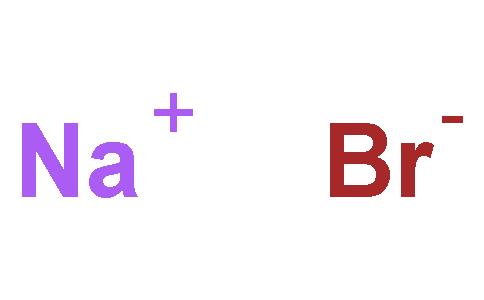Food Grade, Electronic Grade, and Reagent Grade A Detailed Introduction of Ammonium sulfate
Jun 14,2024
Introduction
Ammonium sulfate ((NH4)2SO4) is a widely used inorganic compound known for its unique chemical properties and a wide range of applications. Based on its purity, impurity content, and industry-specific application requirements, ammonium sulfate is often subdivided into food grade, electronic grade, and reagent grade. In this paper, the characteristics, application fields, preparation methods, quality standards, and safety precautions of these three ammonium sulfates are introduced in detail. Food-grade ammonium sulfate.
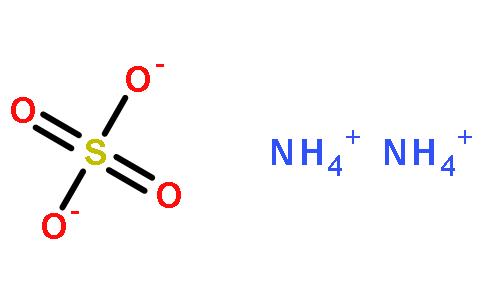
(1) Definition and characteristics
Food-grade ammonium sulfate is a high-purity, non-toxic, and harmless chemical substance, mainly used as a food additive in the food industry. Usually appear as colorless crystals or white particles, odorless, tasteless, and easily soluble in water. Its purity requirements are extremely high, and it must meet the relevant regulations and standards for food additives to ensure its safety in food.

(2) Application field
Food-grade ammonium sulfate is mainly used as a starter, yeast nutrient, and water softener in the food industry. In baked goods, it can promote the fermentation and expansion of dough, and improve the volume and taste of bread, cake, and other products. In the brewing industry, it can be used as a nutrient for yeast, promote the growth and reproduction of yeast, and improve the yield and quality of alcohol. In addition, it can also be used for water softening treatment to reduce the hardness of water and improve the quality of drinking water.
(3) Preparation method and quality standard
The preparation methods of food-grade ammonium sulfate usually include the ammonia method, gypsum method, ammonium bicarbonate method, etc. Among them, the ammonia method is one of the most commonly used preparation methods, through the reaction of ammonia and sulfuric acid to produce ammonium sulfate. In the preparation process, it is necessary to strictly control the reaction conditions, raw material purity, impurity content, and other factors to ensure product quality and safety. Its quality standards usually include purity, heavy metal content, microbial indicators, etc., and must meet the requirements of relevant regulations and standards.
(4) Safety precautions
Although food-grade ammonium sulfate is widely used in the food industry, it is still necessary to pay attention to its safe use. Avoid direct contact with skin and eyes. In case of contact, rinse immediately with water. At the same time, food-grade ammonium sulfate should be stored in a dry, ventilated, cool place, avoiding direct sunlight and a high-temperature environment.1
Electronic grade ammonium sulfate
(1) Definition and characteristics
Electronic grade ammonium sulfate is a high-purity, high-stability chemical substance, mainly used as a raw material or auxiliary material in the electronics industry. Usually appear as colorless crystals or white particles, with good solubility and stability. Its purity requirements are extremely high, and it must meet the relevant standards and requirements of the electronics industry to nsure its stability and reliability in the manufacturing process of electronic devices.
(2) Application field
Electronic-grade ammonium sulfate is mainly used as an etching agent, cleaning agent, and electroplating additive in the electronics industry. In the semiconductor manufacturing process, it can be used as an etching agent to remove impurities and oxides from the surface of silicon wafers. In the integrated circuit manufacturing process, it can be used as a cleaning agent to remove stains and grease on the surface of the chip. In the plating process, it can be used as an additive to improve the performance and appearance of the coating.2
(3) Preparation method and quality standard
Its preparation methods usually include chemical synthesis, ion exchange, crystallization, etc. In the preparation process, it is necessary to strictly control the reaction conditions, raw material purity, impurity content, and other factors to ensure product quality and stability. The quality standards of electronic grade ammonium sulfate usually include purity, metal ion content, particle size, etc., and must meet the relevant standards and requirements of the electronics industry.
(4) Safety precautions
Although it is widely used in the electronics industry, it is still necessary to pay attention to its safe use. Avoid direct contact with skin when using. In case of contact, rinse immediately with water. At the same time, electronic-grade ammonium sulfate should be stored.3
Reagent grade ammonium sulfate
(1) Definitions and characteristics
Reagent-grade ammonium sulfate is a chemical substance with high purity and high accuracy, which is mainly used in chemical analysis, scientific research, and other fields. It usually appears as colorless crystals or white particles, with excellent solubility and stability. The purity of reagent-grade ammonium sulfate is extremely high, and it must meet the relevant standards and requirements of chemical analysis and scientific research to ensure the accuracy and reliability of experimental results.4
(2) Application field
It is widely used in chemical analysis, scientific research, and other fields. It can be used as a standard reagent, analytical reagent, catalyst, etc., for determining the content and properties of various chemical substances. At the same time, reagent-grade ammonium sulfate can also be used to prepare other chemical reagents and compounds, providing the necessary material basis and conditions for scientific research.
(3) Preparation method and quality standard
The preparation methods of it usually include chemical synthesis, ion exchange, crystallization, etc. In the preparation process, factors such as reaction conditions, raw material purity, and impurity content need to be strictly controlled to ensure product quality and purity. The quality standard of reagent-grade ammonium sulfate usually includes purity, moisture content, impurity content, etc., and must meet the relevant standards and requirements of chemical analysis and scientific research.5
(4) Safety precautions
Although reagent-grade ammonium sulfate is widely used in chemical analysis and scientific research, it is still necessary to pay attention to its safe use. In the process of use should avoid direct contact with the skin and inhalation of its dust, such as accidental contact or inhalation should immediately take appropriate first aid measures. At the same time, it should be stored in a dry, ventilated, cool place, avoiding direct sunlight and high temperature.
Ammonium sulfate is a chemical widely used in agriculture, industry, and scientific research. During storage and transportation, it is important to ensure its safety and quality. The following is a brief introduction to ammonium sulfate storage and transportation.
Conclusion
Food grade, electronic grade, and reagent grade ammonium sulfate are different grades of ammonium sulfate products, which differ in purity, impurity content, and use. Choosing suitable ammonium sulfate products is of great significance for ensuring product quality, improving production efficiency, and promoting industrial development.
References
[1]. Maxwell, G. R., Ammonium Phosphates and Ammonium Sulfate. Synthetic Nitrogen Products: A Practical Guide to the Products and Processes 2004, 285-298.
[2]. Veghte, D. P.; Bittner, D. R.; Freedman, M. A., Cryo-transmission electron microscopy imaging of the morphology of submicrometer aerosol containing organic acids and ammonium sulfate. Analytical chemistry 2014, 86(5), 2436-2442.
[3]. Casteel, S.; Chien, S.; Gearhart, M., Field evaluation of ammonium sulfate versus two fertilizer products containing ammonium sulfate and elemental sulfur on soybeans. Communications in soil science and plant analysis 2019, 50(22), 2941-2947.
[4]. Liu, X.-w.; Feng, Y.-l.; Li, H.-r.; Yang, Z.-c.; Cai, Z.-l., Recovery of valuable metals from a low-grade nickel ore using an ammonium sulfate roasting-leaching process. International Journal of Minerals, Metallurgy, and Materials 2012, 19(5), 377-383.
[5]. Shomate, C. H.; Naylor, B., High-temperature heat contents of aluminum oxide, aluminum sulfate, potassium sulfate, ammonium sulfate and ammonium bisulfate1. Journal of the American Chemical Society 1945, 67(1), 72-75.
- Related articles
- Related Qustion
- Synthesis of Ammonium sulfate Mar 31, 2022
Ammonium sulfate is an inorganic sulfate salt obtained by reaction of sulfuric acid with two equivalents of ammonia. A high-melting (decomposes above 280℃) white solid which is very soluble in water
- Uses of Ammonium sulfate Feb 21, 2022
Ammonium sulfate is an inorganic sulfate salt obtained by reaction of sulfuric acid with two equivalents of ammonia,it is widely used as a fertilizer for alkaline soils.
- What is Ammonium Sulfate? Aug 23, 2021
Ammonium sulfate is used most commonly as an artificial fertilizer for alkaline soils. When introduced into damp soil, an ammonium ion is released. This creates a small amount of acid, which lowers the pH balance of the soil. It also contri
Titanium carbide (TiC) is a ceramic material with a high melting point (3160°C) and high hardness (9~9.5 in the Mosh scale).....
Jun 13,2024APIThis review aims to reveal the multifaceted nature of NaBr, exploring its chemical properties, multiple uses across industries, environmental factors.....
Jun 14,2024APIAmmonium sulfate
7783-20-2You may like
Ammonium sulfate manufacturers
- Ammonium sulfate
-
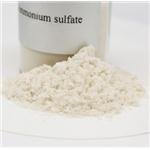
- $300.00 / 10ton
- 2024-06-28
- CAS:7783-20-2
- Min. Order: 1ton
- Purity: 99%
- Supply Ability: 2000tons
- Ammonium sulfate
-
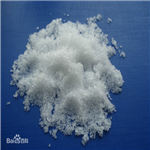
- $0.00 / 25Kg/Bag
- 2024-06-28
- CAS:7783-20-2
- Min. Order: 1000KG
- Purity: 99
- Supply Ability: 10000
- Ammonium sulfate
-
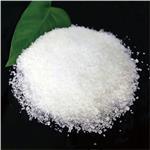
- $6.00 / 1kg
- 2024-05-30
- CAS:7783-20-2
- Min. Order: 1kg
- Purity: More than 99%
- Supply Ability: 2000KG/Month




